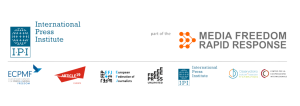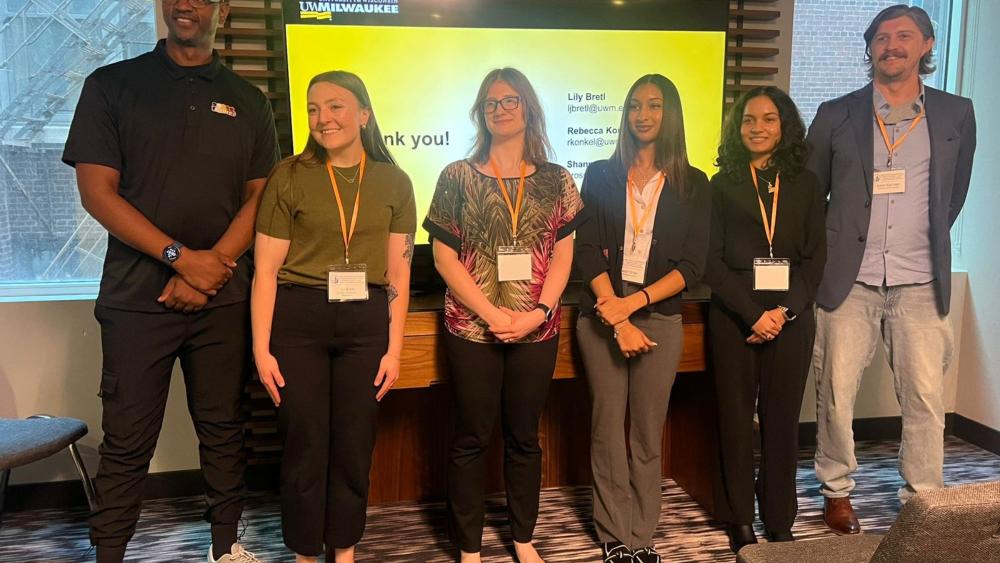Turkey: 7th International press freedom mission concludes – ipi.media

International Press Freedom Mission to Türkiye: An Assessment of Sustainable Development Goal 16
1.0 Introduction and Mission Mandate
An international press freedom mission was conducted in Ankara, Türkiye, from November 24 to 26, 2025. The mission’s primary objective was to assess the state of press freedom and freedom of expression, critical components for achieving Sustainable Development Goal 16 (Peace, Justice and Strong Institutions), particularly Target 16.10, which calls for ensuring public access to information and protecting fundamental freedoms. The delegation comprised leading international organizations dedicated to human rights and media freedom.
- International Press Institute (IPI)
- Amnesty International
- ARTICLE 19 Europe
- Committee to Protect Journalists (CPJ)
- European Centre for Press and Media Freedom (ECPMF)
- Osservatorio Balcani Caucaso Transeuropa (OBCT)
- Reporters Without Borders (RSF)
- South East Europe Media Organisation (SEEMO)
2.0 Mission Engagements and Methodology
The delegation engaged with a range of stakeholders to gather a comprehensive overview of the media landscape. Meetings were held with:
- The Turkish Constitutional Court
- The Radio and Television Supreme Council (RTÜK)
- The Delegation of the European Union to Türkiye
- Foreign diplomatic missions
- Members of Parliament from the Republican People’s Party (CHP) and the Peoples’ Equality and Democracy Party (DEM)
- The Association of Journalists in Ankara and other members of the journalism community
Notably, multiple requests for meetings with government bodies, including the Directorate of Communications, the Ministry of Justice, and representatives of the AKP and MHP, were declined or went unanswered. This lack of engagement presents a significant challenge to fostering the accountable and transparent institutions required by SDG 16.6 and the multi-stakeholder partnerships essential for SDG 17.
3.0 Key Findings: Regression on SDG 16 Targets
The mission observed a significant deterioration in conditions for press freedom since November 2024, indicating a regression from Türkiye’s commitments to the 2030 Agenda for Sustainable Development. The findings highlight systemic challenges to the rule of law, access to information, and institutional integrity.
3.1 Erosion of Rule of Law and Access to Justice (SDG 16.3)
The principle of equal access to justice for all is severely undermined by the systematic judicial harassment of journalists. Key issues include:
- Politically Motivated Prosecutions: Journalists, such as Furkan Karabay and Fatih Altaylı, face investigations and prosecutions that appear politically motivated, creating a climate of fear and self-censorship.
- Arbitrary Pre-Trial Detention: The use of prolonged and arbitrary pre-trial detention contravenes the right to a fair trial and due process.
- Physical Intimidation: Journalists across the country continue to face physical assaults, threats, and intimidation while criminal investigations against them are commonplace.
3.2 Undermining Public Access to Information and Fundamental Freedoms (SDG 16.10)
The mission documented a sharp escalation in actions that directly inhibit public access to information and curtail fundamental freedoms. These actions are in direct opposition to the aims of SDG 16.10.
- Censorship of Protest Coverage: Following large-scale protests in response to the detention of opposition officials, authorities imposed restrictions on media coverage. Journalists documenting these events were subjected to police raids and physical assaults.
- Digital Censorship: The state has resorted to bandwidth throttling of social media platforms and messaging services during events of significant public interest, restricting the free flow of information.
- Vilification Narratives: The resurgence of “foreign influence” narratives is used to justify interference in independent journalism and delegitimize critical voices.
3.3 Weakening of Accountable and Transparent Institutions (SDG 16.6)
Regulatory bodies are being utilized to suppress dissent rather than to ensure a pluralistic media environment, thereby weakening the effectiveness and accountability of state institutions.
- Regulatory Sanctions: The Radio and Television Supreme Council (RTÜK), an institution whose independence has been eroded, has imposed heavy fines and broadcast bans on critical television outlets, depriving the public of diverse sources of information.
- Economic Pressure: The Press Advertising Agency employs restrictive criteria for distributing public advertising, a practice that economically stifles independent local media and serves as a tool of control. While the Constitutional Court has annulled parts of its mandate, the economic pressure persists.
4.0 Recommendations for Alignment with the 2030 Agenda
To reverse the current trajectory and realign with its international commitments, particularly SDG 16, the delegation urges Turkish authorities to take the following steps:
- Uphold the Rule of Law (SDG 16.3): Cease the judicial harassment of journalists, guarantee due process and fair trial rights, and fully implement the freedom of expression decisions of the Constitutional Court at all judicial levels.
- Protect Fundamental Freedoms (SDG 16.10): End all forms of censorship, restore unrestricted digital access, and stop using overly broad criminal and anti-terrorism provisions to vilify the press and civil society.
- Strengthen Institutions (SDG 16.6): Reform regulatory bodies like RTÜK to ensure their operational independence, transparency, and impartiality. Cease the use of arbitrary sanctions and economic pressure as tools to control the media.
- Foster Open and Inclusive Societies (SDG 16.7): Safeguard open debate and ensure a safe, free, and pluralistic media environment, which is essential for democracy and responsive decision-making. Respect international standards by allowing journalist associations to freely issue press cards.
5.0 Conclusion
The actions taken in 2025 have moved Türkiye further from the standards of democracy, the rule of law, and the protection of human rights, thereby impeding progress towards the Sustainable Development Goals. The mission underscores that ongoing peace negotiations present a critical opportunity to enact comprehensive reforms that strengthen journalists’ rights and rebuild respect for fundamental freedoms. A meaningful engagement with domestic and international stakeholders is imperative to uphold press freedom and achieve the vision of SDG 16 for a peaceful, just, and inclusive society.
Analysis of SDGs, Targets, and Indicators
1. Which SDGs are addressed or connected to the issues highlighted in the article?
-
SDG 16: Peace, Justice and Strong Institutions
This is the most relevant SDG as the entire article focuses on the erosion of press freedom, which is a cornerstone of just, peaceful, and inclusive societies. The issues discussed, such as judicial harassment of journalists, lack of government accountability, censorship by regulatory bodies, and the suppression of dissent, directly relate to the goal of building effective, accountable, and inclusive institutions at all levels. The article’s conclusion that a “safe, free and pluralistic media environment is essential to democracy, the rule of law, and the meaningful protection of human rights” encapsulates the core principles of SDG 16.
2. What specific targets under those SDGs can be identified based on the article’s content?
-
Target 16.10: Ensure public access to information and protect fundamental freedoms, in accordance with national legislation and international agreements.
This target is central to the article. The text explicitly details violations of fundamental freedoms, particularly freedom of the press and expression. Examples include “physical assaults” on journalists, “attempts from authorities to silence them,” “heavy fines and broadcast bans targeting critical television outlets,” and “bandwidth throttling of social media platforms.” These actions directly restrict public access to information and suppress the fundamental freedoms that this target aims to protect.
-
Target 16.3: Promote the rule of law at the national and international levels and ensure equal access to justice for all.
The article highlights a breakdown in the rule of law concerning journalists. It mentions “judicial harassment,” “prolonged arbitrary pre-trial detention,” and “politically motivated investigations and prosecutions.” The delegation’s call to “end the judicial harassment of journalists… and guarantee due process and fair trial rights” directly addresses the need to uphold the rule of law and ensure that all individuals, including journalists, have equal access to justice.
-
Target 16.6: Develop effective, accountable and transparent institutions at all levels.
The article criticizes key state institutions for their lack of accountability and transparency. The Radio and Television Supreme Council (RTÜK) is described as an “institution with eroded independence” that uses its power to “silence dissent.” Similarly, the Press Advertising Agency is criticized for its “restrictive and one-sided criteria for distributing public advertising,” which functions as a tool of control rather than a fair, transparent mechanism. These examples point to the failure to develop the effective and accountable institutions envisioned in this target.
-
Target 16.a: Strengthen relevant national institutions… to prevent violence and combat terrorism and crime.
This target is relevant due to its misuse, as implied in the article. The text notes that authorities vilify the press through “vague accusations under its overly broad and vague criminal provisions including those in its anti-terrorism law.” This indicates that national security legislation, intended to combat terrorism, is being used improperly to suppress freedom of expression, undermining the legitimate purpose of these legal frameworks and institutions.
3. Are there any indicators mentioned or implied in the article that can be used to measure progress towards the identified targets?
-
Indicators for Target 16.10 (Public access to information and fundamental freedoms):
- Number of attacks on journalists: The article states that “Journalists across the country continue to face assault, threats, and intimidation.” Tracking the frequency and nature of these incidents serves as a direct indicator.
- Number of sanctions against media outlets: The article mentions that RTÜK “imposed heavy fines and broadcast bans targeting critical television outlets.” The number and severity of these sanctions can be measured.
- Instances of digital censorship: The article points to “bandwidth throttling of social media platforms and messaging services during events of significant public interest” as a measurable form of censorship.
- Economic pressure on independent media: The “restrictive and one-sided criteria for distributing public advertising” by the Press Advertising Agency is an indicator of economic tools being used to control the media.
-
Indicators for Target 16.3 (Rule of law and access to justice):
- Number of journalists detained or prosecuted: The article refers to “criminal investigations and prosecutions” as “commonplace” and mentions “prolonged arbitrary pre-trial detention,” which can be quantified.
- Politically motivated prosecutions: The cases against journalists “Furkan Karabay and Fatih Altaylı” are cited as examples of politically motivated prosecutions, which can be tracked.
- Implementation of court rulings: The call to “fully implement the decisions of the Constitutional Court on freedom of expression” implies non-compliance, making the rate of implementation a key indicator of the state of the rule of law.
-
Indicators for Target 16.6 (Effective, accountable institutions):
- Independence of regulatory bodies: The description of RTÜK as an “institution with eroded independence that urgently needs reforms to restore its autonomy” suggests that its independence can be assessed and measured against international standards.
- Transparency in public advertising distribution: The fairness and transparency of the criteria used by the Press Advertising Agency can be evaluated to measure institutional accountability.
4. Summary Table of SDGs, Targets, and Indicators
| SDGs | Targets | Indicators |
|---|---|---|
| SDG 16: Peace, Justice and Strong Institutions | 16.10: Ensure public access to information and protect fundamental freedoms. |
|
| SDG 16: Peace, Justice and Strong Institutions | 16.3: Promote the rule of law and ensure equal access to justice. |
|
| SDG 16: Peace, Justice and Strong Institutions | 16.6: Develop effective, accountable and transparent institutions. |
|
| SDG 16: Peace, Justice and Strong Institutions | 16.a: Strengthen relevant national institutions… to combat terrorism and crime. |
|
Source: ipi.media
What is Your Reaction?
 Like
0
Like
0
 Dislike
0
Dislike
0
 Love
0
Love
0
 Funny
0
Funny
0
 Angry
0
Angry
0
 Sad
0
Sad
0
 Wow
0
Wow
0












































































